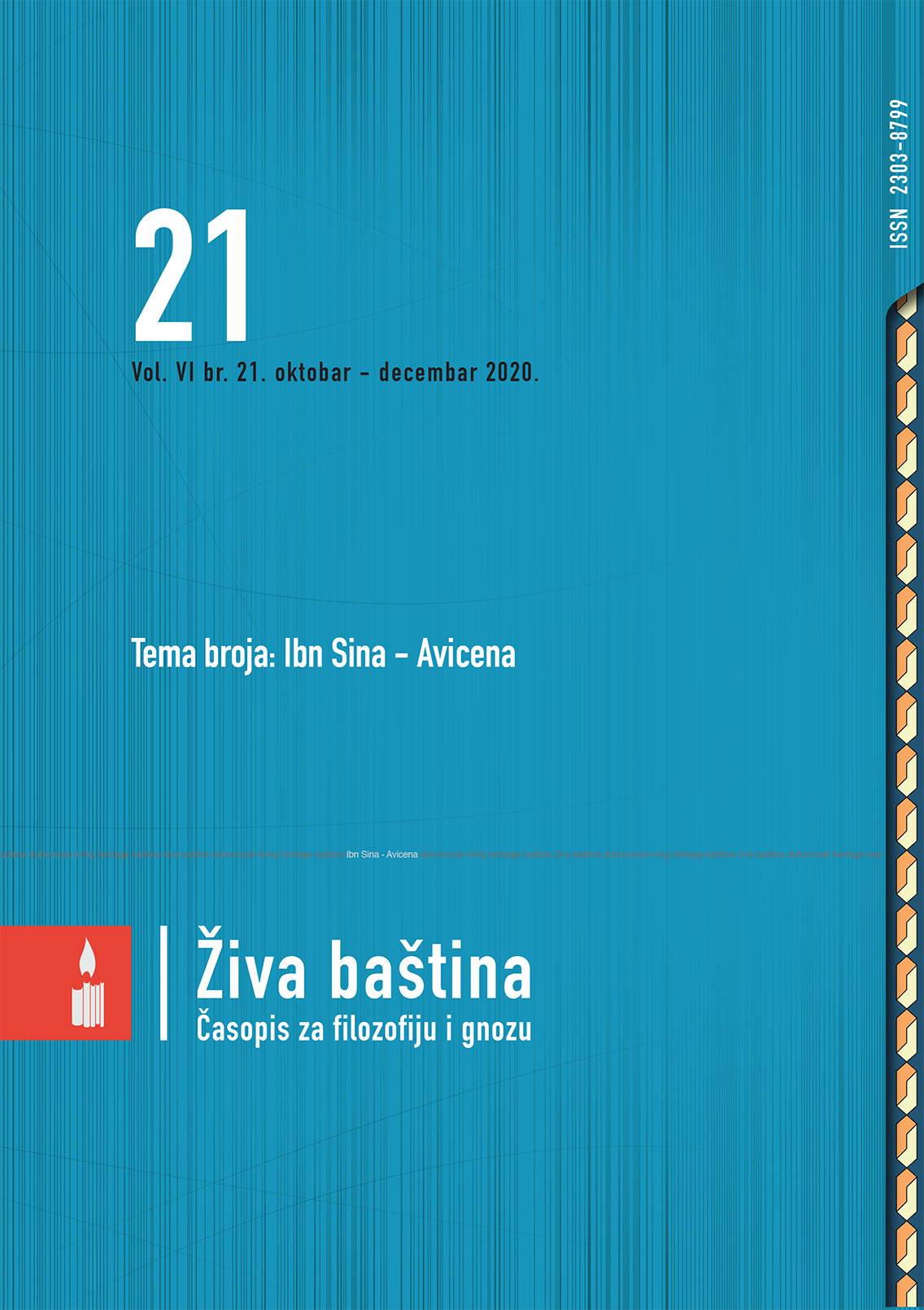Analiza Ibn Sinaove teorije o nedokazivosti Božijeg postojanja argumentom (apriornim argumentom)
An Analysis of Ibn Sina’s Theory that God’s Existence cannot be Proved with an a priori Argument
Author(s): Sejjid Muhammed EntezamContributor(s): Amar Imamović (Translator)
Subject(s): Philosophy, Metaphysics, Theology and Religion, Islam studies, Philosophy of Religion
Published by: Fondacija “Baština duhovnosti”
Keywords: the argument of the truthful; provability by an argument; unprovability by an argument; a posteriori argument;
Summary/Abstract: Ibn Sina believes that God’s existence cannot be proved with an a priori argument. By an apriori argument he thinks of an argument based on causal argumentation (an argument that flows form a cause to a consequence). After listing the types of arguments and their epistemological values, this paper analyses Ibn Sina’s view on the impossibility of providing an argument for God’s existence and his proofs for that. In the end of this paper, a conclusion is reached that not only is Ibn Sina’s “argument of the truthful” an a priori argument, but so are the arguments that take the creation as a basis for their argumentation and only appear to be a posteriori arguments (an argument that flows from a consequence to a cause), and all that based on the accepted principles in logic. Given that these arguments do not prove God’s existence directly, in relation to their conclusion they are a priori arguments essentially, and in relation to God they are a priori arguments accidently.
Journal: Živa baština: časopis za filozofiju i gnozu
- Issue Year: IV/2020
- Issue No: 21
- Page Range: 42-55
- Page Count: 14
- Language: Bosnian

